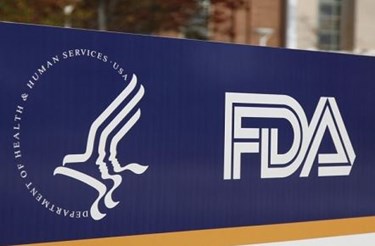Could The RESULT Act End The FDA's Monopoly On Drug Approval?

By Ed Miseta, Chief Editor, Clinical Leader

If a pharmaceutical company would like to get a drug approval in the U.S., there is but one agency that can do it: the FDA. This set-up is what economists would refer to as a state-sponsored monopoly, where one entity in granted the sole authority to provide a good or service. While multiple producers can promote lower prices, greater efficiencies, and choice, a monopoly has the advantage of being easier to regulate and control. Unfortunately, with only one provider, they can also be delays and shortages.
A new bill introduced in December 2015 seeks to end this monopoly. The RESULT (Reciprocity Ensures Streamlined Use of Lifesaving Treatments) Act, introduced by republican senators Ted Cruz of Texas and Mike Lee of Utah, seeks to bring some needed help to the overburdened agency while at the same time getting needed medicines and medical devices to patients faster.
The idea behind the act is that drugs and medical devices already approved in certain other countries could be quickly given approval in the U.S. It advocates for the U.S. to provide reciprocal approval of drugs, devices, and biologics already approved by agencies in other leading OECD (Organization for Economic Cooperation and Development) countries. Examples would include the Health Canada Agency or the European Medicines Agency.
Under the RESULT Act, the HHS Secretary is instructed to approve a drug, device or biologic if the FDA confirms the product is:
- Lawfully approved for sale in one of the listed countries;
- Not a banned device by current FDA standards;
- There is a public health or unmet medical need for the product.
The Act would allow citizens in the U.S. access to drugs approved in trusted and developed countries and creates a 30-day window for the FDA to review lifesaving drug and device applications. A provision in the act also allows Congress to override FDA denials of life-saving drugs via a majority vote through joint resolution.
In a commentary by Daniel Klein, appearing on the website of economic research group Mercatus Center at George Mason University, the author notes a survey of 467 economists in 2013 found that a significant majority of them approved of the change. Of the ones who did not select "no opinion", 53 percent agreed with the reform while just 29 percent disagreed. The individuals who favored the reform were also more likely to note that they held their belief strongly.
Why would a majority of economist support the change? According to Klein, The FDA will only approve a drug after it undergoes a process that is rigid, costly, and uncertain. Some would even argue capricious and political. This makes pharmaceuticals different from other industries, including food, where goods are only subject to general standards, and consumers have recourse via the court system if a seller jeopardizes their safety.
Faster Approvals Save Lives
The benefits of the reciprocity arrangement are obvious. By accepting the approvals of a handful of regulatory agencies, the approval process is faster, medicines make it to patients faster, and more lives can be saved. For a regulatory agency that is admittedly understaffed and overworked, the bill could be exactly what it needs. Of course there will be those who disagree with the approach, arguing necessary controls that save lives would be out of the hands of our own regulators.
It should be noted that each regulatory agency would continue to face intense pressure at home, by both consumers and politicians, to keep their medicines safe and effective. There would be no incentives for an agency to be first to approve a medicine, thereby preventing a "race to the bottom" Of agencies rushing to gain approval. That hasn’t stopped pundits from questioning whether the Act could lead pharma companies to seek approval in countries where the process is less stringent.
Klein notes one downfall of our current system that is not as obvious as a slow approval: the invisible graveyard of patients who were not saved by needed medicines. When the drug approval process is incredibly costly as well as lengthy, many pharma and bio companies will opt out of pursuing certain molecules altogether, while others might carry a much higher price tag as a result of the process.
Some may argue that a lack of medicines in pharma pipelines is causing the delay in getting medicines to patients, not the FDA, which now has expedited approval pathways in place. Even so, that does not account for those medicines that are simply not pursued because of the costly and lengthy clinical trial and approval processes.
As we move into the future of medicine, the process will certainly not get any easier. Genomics and personalized/precision medicines will mean more drugs tailored to smaller patient populations. A large increase in the number of medicines requiring approval could leave the FDA unable to keep up with the onslaught.
A few researchers have already pointed a finger at Thalidomide as an example of what could go wrong when leaving the approval process up to other agencies. Thalidomide, which was approved in Europe in the 1950s but not approved by FDA inspector Frances Kelsey, was later found to cause birth defects when taken by pregnant women.
While both sides make valid points, I hope this act receives the close consideration that it deserves. Yes, it would usurp some of the power and prestige of this government watchdog, and one portion of the act even gives Congress the authority to override decisions made by the FDA. But the health benefits of the act could outweigh those costs, quickly becoming a boon to both patients and the industry. For an industry striving to become more patient centric, it could be a step in the right direction.
